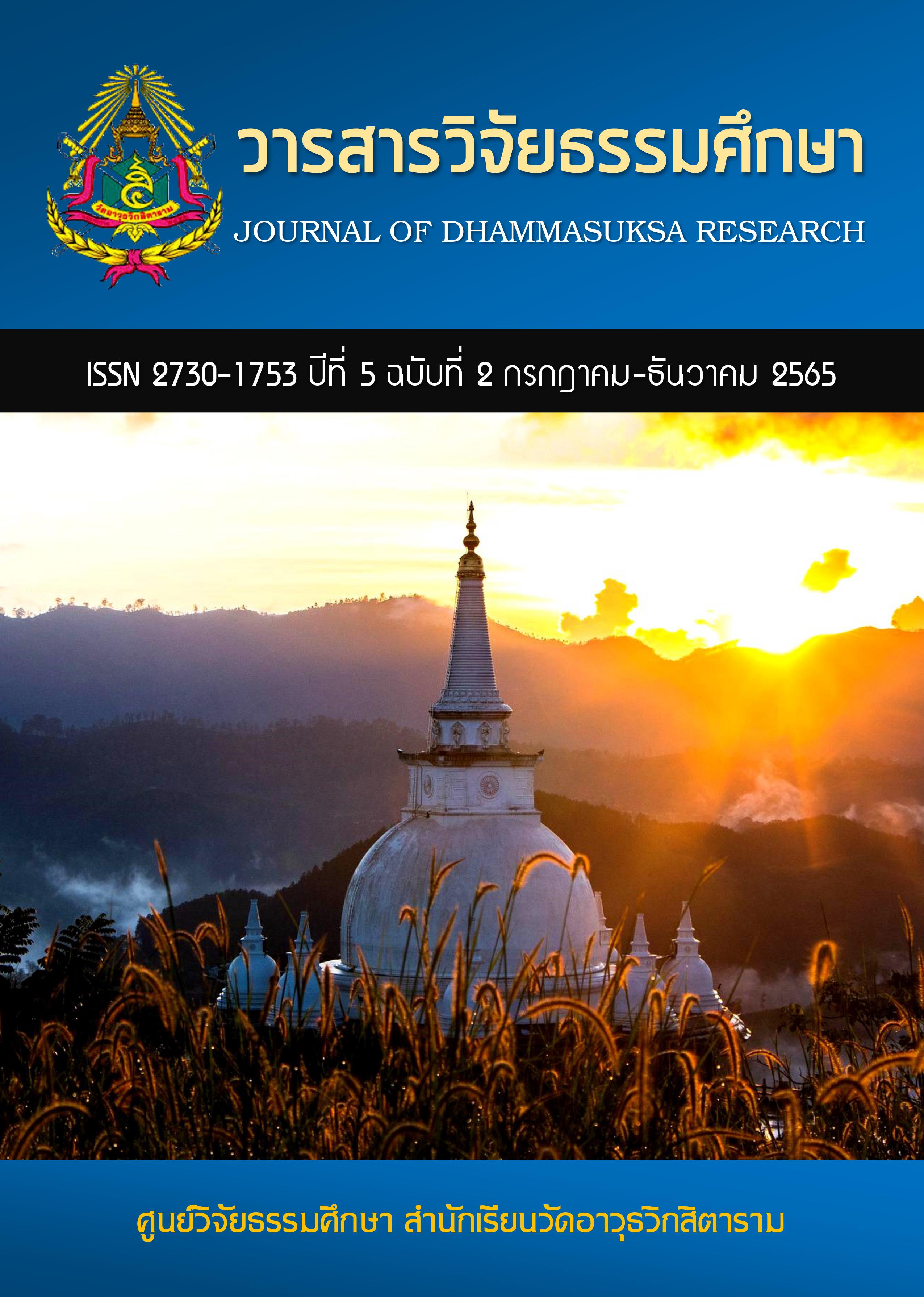Personal Management according to Dharmic Principles for Business Persons
Keywords:
Personal Management, Dharmic Principles, Business PersonsAbstract
The purpose of this article is to synthesize the personal management according to dharmic principles for business persons. The methodology was based on the qualitative research by studying and compiling all information from documents and research papers relating to the personal management according to dharmic principles. The result indicated that the dharmic principles relating to the personal management in Sutrapitaka included Brahmavihara, Sangahavatthudhamma, Sappurisadana, and Agati. The dharmic principles in these 4 sectors are important for the personal management from inner to outer. When synthesizing these dharmic principles, it was found that the leaders who had Metta, Karuna, Mudita, and Upekkha, nice and sincere talks, offering and sharing wisely and fairly without bias would be favored by general people and co-workers, compromise happiness for the public fairly, and share happiness and success together by love and harmony.
References
การศาสนา, กรม. (2525). พระไตรปิฎกภาษาไทย ฉบับหลวง. กรุงเทพฯ: กรมการศาสนา.
เนตรชนก โพธารามิก. (2561). พรหมวิหารกับคุณค่าในสังคมไทย. วารสารศิลปะการจัดการ. ปีที่ 2. ฉบับที่ 1. (มกราคม-เมษายน).
พระพรหมคุณาภรณ์ (ป.อ. ปยุตฺโต). (2552ก). พจนานุกรมพุทธศาสตร์ ฉบับประมวลธรรม. พิมพ์ครั้งที่ 17. กรุงเทพฯ : สำนักพิมพ์จันทร์เพ็ญ.
. (2552ข). พจนานุกรมพุทธศาสน์ ฉบับประมวลศัพท์. พิมพ์ครั้งที่ 12. กรุงเทพฯ : สำนักพิมพ์จันทร์เพ็ญ.
พระมหาสุภีร์ ฐิตเมโธ. (2533). “พระพุทธศาสนาที่ควรนำมาประยุกต์ใช้กับการบริหารราชการ”. วิทยานิพนธ์ ศาสนศาสตรมหาบัณฑิต, บัณฑิตวิทยาลัย, มหาวิทยาลัยมหามกุฏราชวิทยาลัย.
พระราชธรรมนิเทศ (ระแบบ ฐิตญาโณ). (2537). นิเทศธรรม. กรุงเทพฯ: โรงพิมพ์ธีรพงษ์การพิมพ์.
พระสุทธิพงศ์ ธรรมพิทักษ์, (2544). “การศึกษาเชิงวิเคราะห์พุทธจริยธรรมสำหรับพระมหากษัตริย์ที่ปรากฏในคัมภีร์ทางพระพุทธศาสนาเถรวาท: ระหว่างพระเจ้าพิมพิสารกับพระเจ้าปเสนทิโกศล”. วิทยานิพนธ์อักษรศาสตรมหาบัณฑิต, บัณฑิตวิทยาลัย, มหาวิทยาลัยมหิดล.
ราชบัณฑิตยสถาน. (2548). พจนานุกรมมศัพท์ศาสนาสากล อังกฤษ-ไทย ฉบับราชบัณฑิตยสถาน. พิมพ์ครั้งที่ 2. กรุงเทพฯ: ห้างหุ้นส่วนจำกัด อรุณการพิมพ์.
วินัย ภูมิสุขและณัฏฐกานต์ หงส์กุลเศรษฐ์. (2562). การบริหารทรัพยากรมนุษย์ตามหลักพรหมวิหาร. บัณฑิตศึกษาปริทรรศน์ วิทยาลัยสงฆ์นครสวรรค์. ปีที่ 7. ฉบับที่ 3 (กันยายน-ธันวาคม) : 457-472.
สาคร สุขศรีวงศ์. (2559). MANAGEMENT: from the Executive’s Viewpoint การจัดการ: จากมุมมอง นักบริหาร. พิมพ์ครั้งที่ 14. กรุงเทพฯ: บริษัท จี.พี.ไซเบอร์พรินท์ จำกัด.
สิรินทร์ กันยาวิริยะ และคณะ. (2563). การบริหารธุรกิจตามหลักพุทธปรัชญาเถรวาท. วารสารการวิจัย การบริหารการพัฒนา. ปีที่ 10. ฉบับที่ 2. (เมษายน-มิถุนายน) : 171-179.
Vatsyayan, K. (1986). Made Easy Ethics. New Delhi: Kedar Nath Ram Nath.
Downloads
Published
How to Cite
Issue
Section
Categories
License
Copyright (c) 2022 Journal of Dhammasuksa Research

This work is licensed under a Creative Commons Attribution-NonCommercial-NoDerivatives 4.0 International License.



